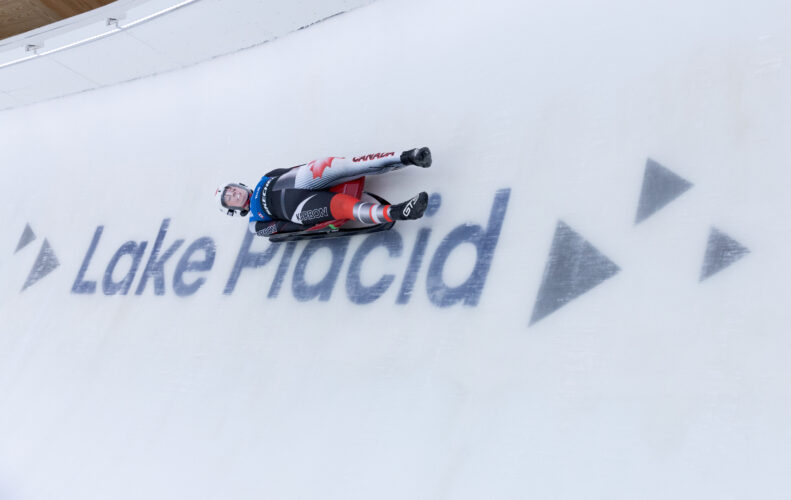DEC: ‘Clean. Drain. Dry.’ your watercraft, equipment

Boat steward Oliver Hess, right, inspects a motorboat with New Jersey plates — looking for possible signs of invasive species — in July 2022 at the Lake Placid lake boat launch off Mirror Lake Drive. (News photo — Andy Flynn)
ALBANY — The state Department of Environmental Conservation recently reminded recreationists to “Clean. Drain. Dry.” boats, trailers, fishing gear and other equipment before launching in New York’s waters to prevent the spread of aquatic invasive species.
Starting Friday, May 23, boaters were seeing the blue vests worn by watercraft inspection stewards, also known as boat stewards, at more than 220 boat launches and decontamination stations throughout the state. Boat stewards are volunteers or paid members of local communities who help protect New York’s waters.
“Boat stewards are vital to protecting our lakes, ponds, and rivers from harmful invasive species like zebra mussels, hydrilla, and Eurasian watermilfoil,” DEC Acting Commissioner Amanda Lefton said. “As we kick off this year’s boating season, DEC and our partners across the state encourage those out on the waters to respectfully interact with New York’s boat stewards and support our ongoing efforts to safeguard our waters from invasive pests.”
All boaters operating any kind of motorized watercraft in the Adirondack Park and within 10 miles of the Blue Line are required by law to possess certification that, before launching, their vessel has undergone measures to prevent the spread of aquatic invasive species by following the Clean. Drain. Dry. standards.
These certificates can be acquired by visiting a DEC designated aquatic invasive species inspection station where boat stewards are present to inspect or decontaminate vessels and to provide boaters with a certification card. Boaters may perform Clean. Drain. Dry. steps themselves and then complete a self-issued certificate (PDF) to be printed and carried by boat users. It can be found online at https://tinyurl.com/33wrkpzn.
In 2024, stewards conducted more than 219,000 watercraft inspections and intercepted over 11,000 aquatic invasive plants and animals while raising awareness about AIS and fostering stewardship of New York’s waters. The State Office of Parks, Recreation and Historic Preservation works collaboratively with DEC’s Watercraft Inspection Steward Program operating approximately 30 sites located at State Park ramps.
Aquatic invasive plants, like water chestnut, can shade out native plants that provide food and shelter for native animals and lower dissolved oxygen levels. Invasive fish like round goby can carry pathogens, prey upon native fish eggs and fry, and out-compete native fish species. Both invasive plants and animals can also impact local economies.
All water recreationists are advised to follow these steps to help prevent the spread of AIS:
– Clean mud, plants, and animals off boats, trailers, fishing gear, and other equipment (trailer bunks, axles, rollers, lights, transducers, and license plates; motor props; waders; diving gear; anchors; etc.) and discard the material in a trash can or at a disposal station;
– Drain all water-holding compartments, including ballast tanks, live wells, and bilge areas, before leaving an access site;
– Dry everything thoroughly before using boats or equipment in another waterbody; drying times can vary, but five to seven days in dry, warm conditions is recommended;
– When there’s no time to dry between uses, disinfect boats and equipment with hot water that is at least 140 degrees Fahrenheit or visit a decontamination site;
– Pick up a Clean. Drain. Dry. towel and a Protect Your Waters sticker from one of the stewards as a reminder to take these preventive steps;
– Use certified bait that is non-invasive and disease free; and
– Do not dump aquarium contents in any waterbodies, drainage ditches, or sewers.
DEC also reminds New Yorkers to treat boat stewards respectfully. New York State does not tolerate harassment of any kind. Stewards are directed to report inappropriate behavior or treatment by anyone at boat launch locations. We encourage members of the community to help stop harassment by reporting misconduct or harassment to DEC, partner organizations, or local law enforcement as appropriate.




